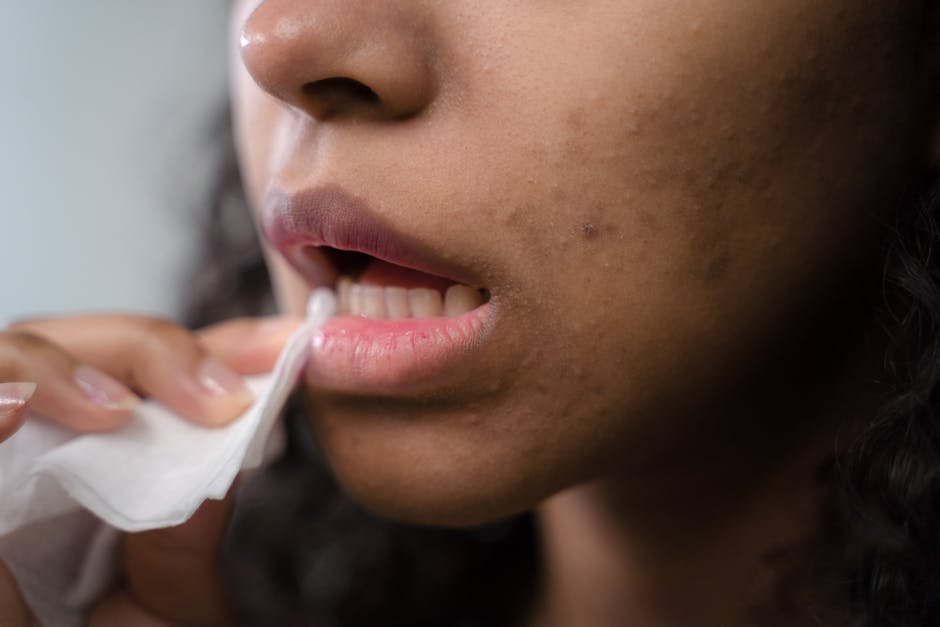Acne Treatment in Saginaw


When most people think of acne in Saginaw, MI, they probably picture a teenager with facial pimples. However, acne can occur at any age and on almost any area of the body, including the face, chest, back, neck, and arms. Though acne is not considered a harmful medical condition, the effects can have a significant impact on a patient’s confidence in their appearance and quality of life. That’s why our providers near you at MI Health Dermatology offer treatment solutions for patients suffering from acne.
When bacteria, dead skin cells, and extra oil mix, acne will start to develop. When they get clogged up, it causes inflammation and creates blackheads, whiteheads, papules, pustules, nodules, and cysts. Often, untreated acne can cause hyperpigmentation and scarring that can be permanent and impact a person’s appearance and confidence.
While acne isn’t fatal, the psychological effects must not be overlooked. Experiencing acne that won’t go away or is particularly severe can also cause social anxiety. Emotional stress and feelings of inadequacy may hinder the quality of life. A lot of patients feel so fed-up and dejected after using several creams, scrubs, or home remedies from the pharmacy and getting no result.
At MI Health Dermatology we have a great dermatology team that knows how much acne can affect your daily life. Our treatments are safe and effective, based on scientific research and customized to patients’ needs. Depending on the case, your dermatologist may give you prescription topical therapies, oral medications or some hormonal treatments. Moreover, they may also perform a laser procedure or suggest a chemical peel. Also, these options help in reducing inflammation, controlling oil production and preventing future breakouts.
No matter how mild, moderate, or severe your acne is, we’ll help you develop a detailed plan to get your skin smooth, clear, and healthy looking. With appropriate medical care and regular follow-up treatment, not only can the patient improve, but they will also feel at ease and develop confidence.
What Causes Acne?
Acne is caused by the plugging of oil glands and/or ducts in a patient’s skin. These glands or ducts may be clogged with secretions produced by the sebaceous glands, oil, or even dead skin cells. The result is inflammation that can manifest in pimples and blemishes on the skin. There are several factors that influence the development of acne, including:
- Make-up
- Sunscreen
- Moisturizers
- Genetics
- Excess skin oil
- Bacteria
- Hormones
- Stress
- Puberty
- Menstruation
- Pregnancy
- Menopause
Can Acne Be Prevented?
Acne Treatment Options.
After recognising the causes of acne and the different types of acne, it shall now discuss the treatments which are available to treat and prevent breaking out in the future.
MI Health Dermatology takes a multi-level and evidence-based approach to acne treatment involving pharmacology and in-office treatment. The kind and severity of a patient’s acne as well as the underlying problems are analyzed first. Then, the patient receives a completely personalized treatment plan based on this analysis.
1. Topical Treatments.
Topical treatment is the first-line therapy for mild to moderate cases. It acts directly on the skin. Their action helps reduce bacteria and regulate cell turnover. In addition, it also prevents clogging of the pores.
Topical treatments for mild to moderate acne are your first-line therapies that act directly on the skin surface.
| Category | Examples | Primary Function |
|---|---|---|
| Retinoids | Differin (Adapalene) | Regulates cell turnover, prevents clogged pores |
| Antibiotics | Cleocin Gel (Clindamycin) | Reduces bacterial growth and inflammation |
| Benzoyl Peroxide | Various OTC & Rx products | Kills acne-causing bacteria, prevents resistance |
| Combination therapies | Retinoid + Antibiotic gels | Targets multiple causes of acne simultaneously |
Advantages: Localized action, minimal systemic side effects.
Disadvantages: May cause temporary dryness, irritation, or redness during initial use.
2. Systemic Treatments
| Medication | Active Ingredient | Treatment Type | Typical Use |
|---|---|---|---|
| Accutane | Isotretinoin | Retinoid | Used for severe cystic or nodular acne resistant to other treatments |
| Deltasone | Prednisone | Corticosteroid | Reduces inflammation during acute flare-ups |
| Omnicef | Cefdinir | Oral Antibiotic | Kills bacteria contributing to infection and inflammation |
| Minomycin | Minocycline | Oral Antibiotic | Controls bacterial overgrowth and decreases redness |
| Dapsone | Dapsone | Anti-inflammatory | Beneficial for inflammatory acne types |
| Prednisolone | Prednisolone | Corticosteroid | Used for short-term suppression of severe inflammation |
| Betnovate | Betamethasone | Topical Steroid | Applied for targeted inflammation control in select cases |
You may want to consider taking systemic medication for really severe acne which does not respond to topical treatments and these have their pros and cons. Individuals with moderate or severe acne often receive oral medications, particularly if their condition covers a large area or causes cysts.
3. In-Office Procedures
| Procedure | Description | Benefits |
|---|---|---|
| Laser Therapy | Targets sebaceous glands and bacteria | Reduces oil production and inflammation |
| LED Light Therapy | Uses blue/red light wavelengths | Kills acne bacteria, calms inflammation |
| Chemical Peels | Controlled exfoliation using acids | Improves skin texture, clears pores, brightens skin tone |
| Minomycin | Minocycline | Oral Antibiotic |
| Microdermabrasion | Mechanical exfoliation | Removes dead cells, smooths skin surface, helps absorption of topical agents |
Advantages: Immediate visible improvement, minimal downtime, enhances results of medications.
Disadvantages: May require multiple sessions and maintenance treatments.
4. Comprehensive Care Philosophy
Our acne management is not limited to surface-level treatment. MI Health Dermatology focuses on:
- Identifying root causes (hormonal, environmental, or bacterial factors)
- Combining therapies for optimal, long-term results
- Monitoring progress through regular follow-ups
- Offering scar prevention and skin restoration strategies
With this multi-faceted approach, patients achieve clearer, smoother, and healthier skin — and maintain it for years to come.
